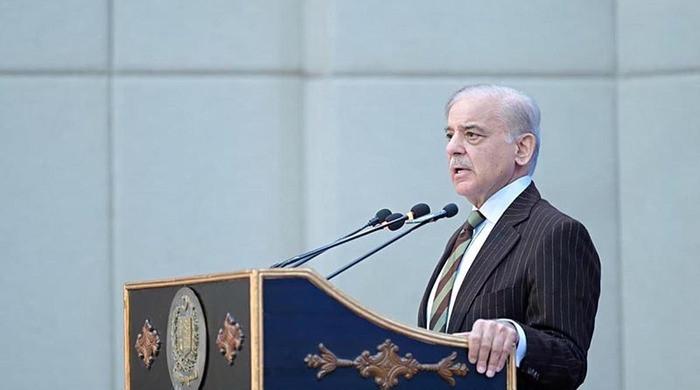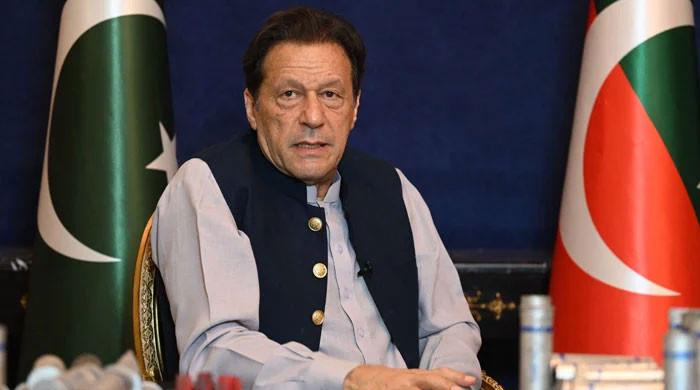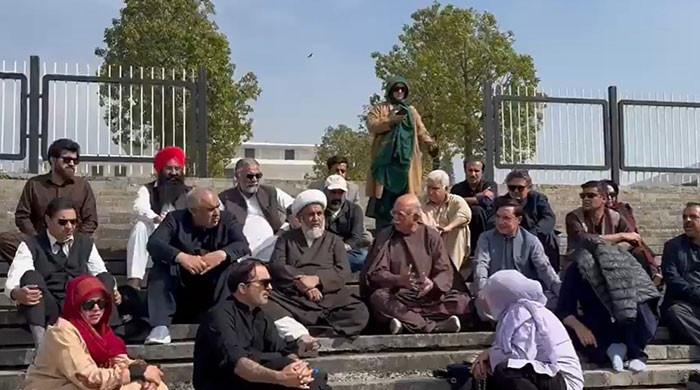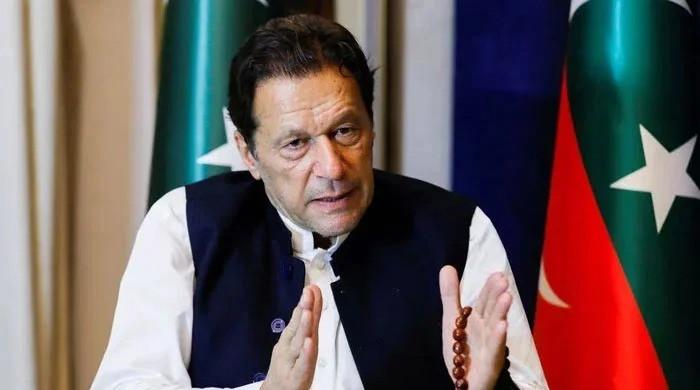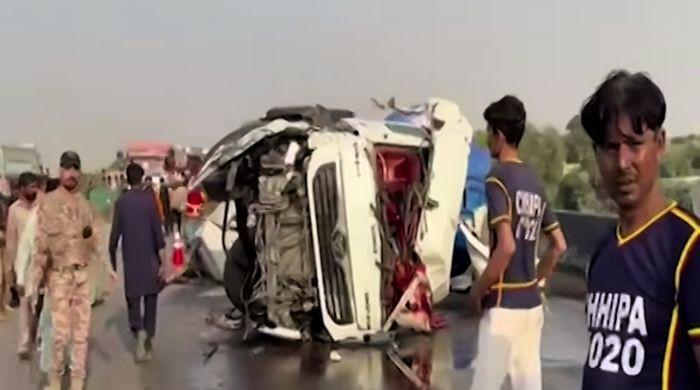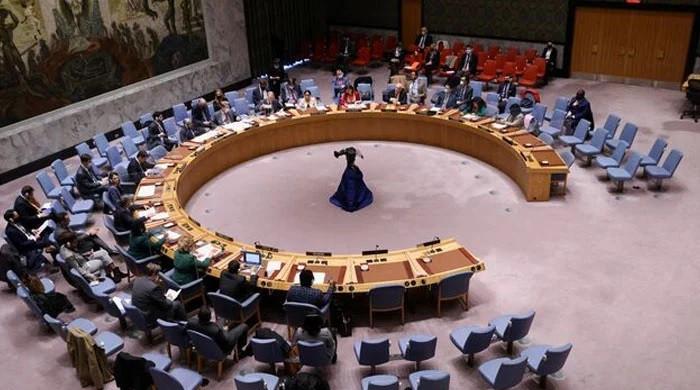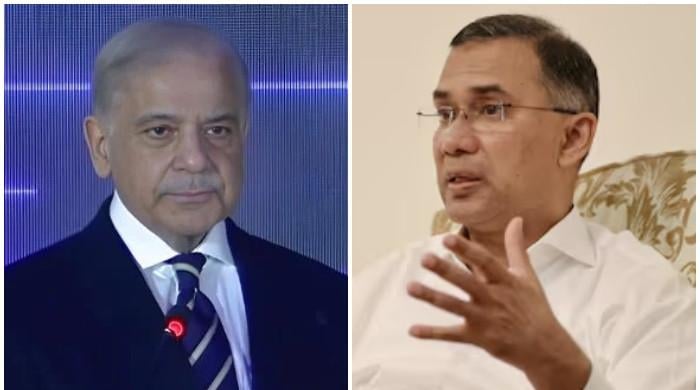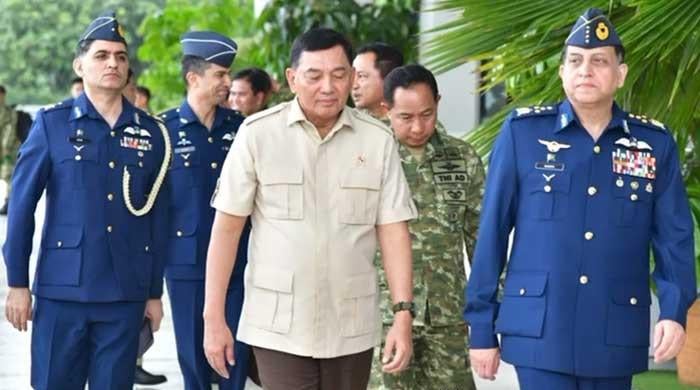Islamabad court rejects ECP's early hearing plea in Toshakhana case
Following today's order additional sessions judge will resume hearing on pre-decided date — April 29
April 11, 2023
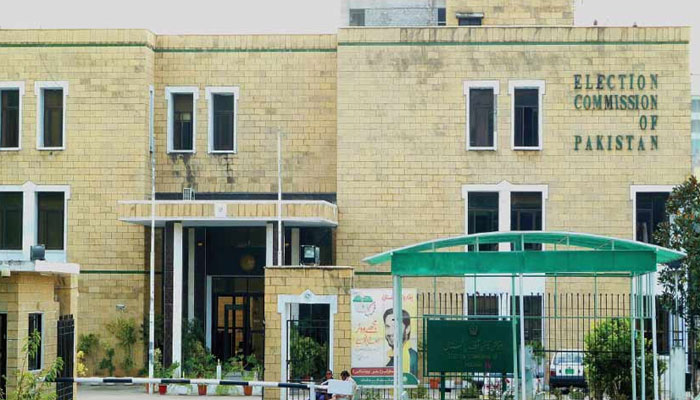
- Additional sessions judge will resume hearing on April 29.
- Khan's lawyers say early hearing is a "waste of resources".
- ECP defends plea registered in light of Supreme Court's ruling.
ISLAMABAD: In a relief for Pakistan Tekreek-e-Insaf (PTI) Chairman Imran Khan, a district and sessions court on Tuesday rejected the Election Commission of Pakistan's (ECP) petition seeking an early hearing in the Toshakhana case.
After hearing arguments from both sides, Additional Sessions Judge Zafar Iqbal said the hearing in this regard will be held on April 29 — which was decided initially on March 30.
Khan is facing charges of corrupt practices related to the state gift depository — the allegation he denies.
In October last year, Khan was barred from holding public office after the ECP found him guilty of unlawfully selling gifts from foreign dignitaries and heads of state.
The trial court had issued an arrest warrant for the PTI chief in March due to his continuous absence, despite summons for indictment in the case.
The order of arrest, however, was cancelled by the trial court a few days later, over PTI's insistence that Khan's life was in danger and he needed security. The court had adjourned the hearing till March 30 and ordered Khan to ensure his presence.
However, during the last hearing on March 30, the deposed prime minister — who was ousted from the prime minister's office in April last year — was granted relief till April 29 despite his absence.
At the outset of today’s hearing, the court asked the lawyers about their take on the petition filed by the commission.
Imran Khan’s lawyers Khawaja Haris and Faisal Chaudhry said there was no need for an early hearing and termed it a "waste of resources".
They argued that the hearing was adjourned till April 29 after consultation with the ECP; however, after two days the electoral body decided that it want to get this hearing fixed earlier.
Meanwhile, Khawaja Haris added that decision, in this case, should be taken without the influence of the ECP alleging that the commission's conduct is “discriminatory" towards Khan.
“The ECP’s interference in getting the hearing fixed earlier is equivalent to influencing the decision in this case as it wants to indict the PTI chief,” he added.
On the other hand, ECP lawyer Amjad Pervaiz said Khan’s counsels were accusing the electoral body of a “discriminatory attitude”, adding that their request was in line with Supreme Court’s ruling stating that the trial court should conclude cases regarding corrupt practices within three months.
“The Supreme Court has said that once a complaint is registered the case should be wrapped up within three months,” he said, adding the ECP’s plea was registered in light of the apex court’s order.
Toshakhana case
Under the rules governing "Toshakhana" — a Persian word meaning "treasure house" — government officials can keep gifts if they have a low worth, while they must pay a dramatically reduced fee to the government for extravagant items.
The Toshakhana is under a microscope ever since the emergence of the allegations that Imran Khan purchased the gifts he received as prime minister at throwaway rates and sold them off in the open market for staggering profits.
The 70-year-old cricketer-turned-politician was accused of misusing his 2018 to 2022 premiership to buy and sell gifts in state possession that were received during visits abroad and worth more than Rs140 million ($635,000).
The gifts included watches given by a royal family, according to government officials, who have alleged previously that Khan's aides sold them in Dubai.
The gifts included seven wristwatches, six made by watchmaker Rolex, and the most expensive a "Master Graff limited edition" valued at 85 million Pakistani rupees ($385,000).
The election commission's order had said Imran stood disqualified under Article 63(1)(p) of the Constitution.
Following the order, the election watchdog moved the Islamabad sessions court and sought criminal proceedings against him — and the PTI chief has missed several hearings.




